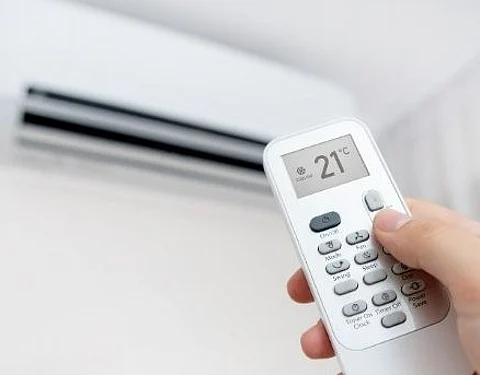
- News Updates
- PSU Watch
- Defence News
- Policy Watch
- हिन्दी न्यूज़
- Jobs Watch
- States News
- Event News

New Delhi: Efforts made by the Bureau of Energy Efficiency (BEE) and other ICAP initiatives introduced by the Ministry of Power, have improved the performance of air conditioners and accelerated the deployment of highly Energy Efficient inverter technology, said the Ministry in a statement on Wednesday. "As per the data from the Bureau of Energy Efficiency (BEE), Ministry of Power, for split Room Air-Conditioners (RACs), the overall energy efficiency improvement is 43 percent for 1-Star and 61 percent for the 5-Star level. On the other hand, the overall energy efficiency improvement for window RACs is 17 percent for 1-Star and 13 percent for 5-Star level," the statement added.
Highlighting the impact of various policies initiated by the central government, The interventions by the central government have also led to an increase in the market share of the more efficient, Inverter RACs. In 2015, the market share of variable speed RACs was less than one percent in the overall RAC market size of 4.7 million units. In June 2015, BEE introduced a voluntary labelling programme for Inverter RACs with a new star rating methodology called Indian Seasonal Energy Efficiency Ratio (ISEER) which was made mandatory from January 2018.
"During the eight years from 2015-16 to 2022-23, the market share of the more efficient, variable speed (Inverter) RACs increased from 1 percent to 99 percent, while that of the fixed speed RAC, reduced from 99 percent to 23 percent during the same period," the statement said. Further, it added that "the overall market for RACs reached 6.6 million units by 2020-21. This market transformation towards efficient technology was possible due to the adoption of the variable speed (Inverter) RAC policy, which offers benefits to the consumers in terms of electricity and cost savings."
The statement also claimed that these initiatives are part of the India Cooling Action Plan (ICAP), which aims to provide an integrated vision towards cooling across sectors encompassing inter alia reduction of cooling demand, refrigerant transition, enhancing energy efficiency and better technology options with a 20-year time horizon.
Alok Kumar, Secretary, Ministry of Power said that the programme is achieving its intended outcomes. "Indian economy is growing at a rapid pace and so the demand for cooling is going to increase multi-fold over next few decades. Under ICAP, a detailed action plan has been chalked out. This will ensure that while we cater to our development needs, we do it in an efficient manner," he added. Abhay Bakre, DG, BEE said that the ICAP is a comprehensive plan covering all sectors and the government is committed to successfully implementing the ICAP.
(PSU Watch– India's Business News centre that places the spotlight on PSUs, Bureaucracy, Defence and Public Policy is now on Google News. Click here to follow. Also, join PSU Watch Channel in your Telegram. You may also follow us on Twitter here and stay updated.)
